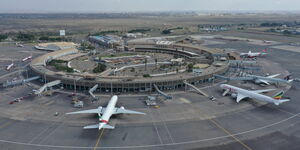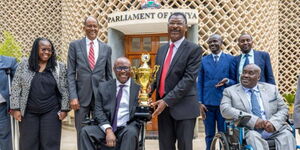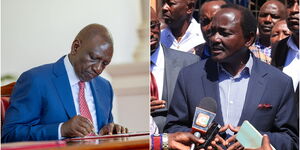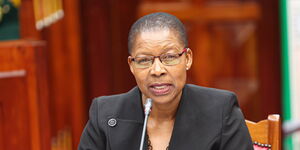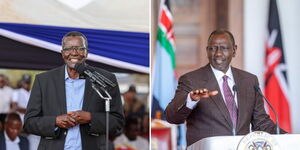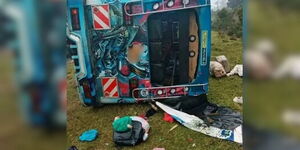Kenya is working on a Private Private Partnership plan to finish constructing the final phase of the Standard Gauge Railway (SGR) through to Malaba and eventually into Uganda.
Speaking during an interview on Monday, Transport Cabinet Secretary Kipchumba Murkomen revealed that the government has been working on a new funding model after facing a series of setbacks that culminated in former President Uhuru Kenyatta's administration having to deny reports that the Chinese government had refused to advance Kenya a loan to complete the line from Naivasha to Kisumu.
The CS stated that the government is assessing Public-Private Partnerships (PPP) options for the project as President William Ruto prepares himself to attend the 9th Forum on China-Africa Cooperation (FOCAC) Summit slated to be held in Beijing from September 3 to September 8, 2024.
“This model we are working on it before the President can got to The Forum on China–Africa Cooperation (FOCAC) in September,’ Murkomen added.
“We want to use Public-Private Partnerships, a combination of private investment, Railway Development Levy and also support from our development partners, stated Murkomen.
He noted that the government would also leverage funds from the Rail Maintenance Levy Fund to push the project.
In 2018, Kenya was reportedly denied a loan to finish the final segment of the SGR when former President Uhuru Kenyatta flew to Beijing for diplomatic talks with his Chinese counterpart Xi Jinping.
At the time, media reports indicated that Beijing was not confident about Kenya's ability to service its loans to match the magnitude of facility Nairobi was seeking.
Government efforts in February 2024 to revive the project saw the Kenya Railways Corporation (KRC) disclose that it is recruiting a consultant to undertake the mapping and propose a compensation and resettlement plan for all affected by works on the 255-kilometre proposed project route that traverses Narok, Bomet, Kericho, and Kisumu counties.
"The objective of the Resettlement Action Plan study is to identify the persons and developments within and the immediate precinct of the proposed Phase 2B alignment corridor, assess the probable effects of both the construction and operations of the railway line and propose appropriate compensation/mitigation measures for restoration of livelihoods," the then KRC Managing Director Philip Mainga said in a tender call for consultants.

